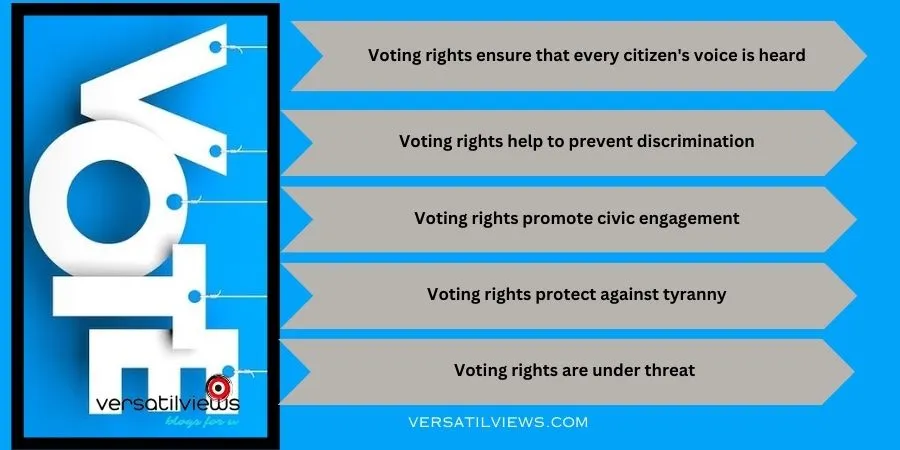Voting is not just a civic duty; it is a powerful tool that shapes the destiny of a nation. As a young Indian citizen, I eagerly awaited the day when I could exercise my right to vote and contribute to the democratic process that governs our diverse and vibrant nation. This narrative explores my journey leading up to and during my first voting experience, delving into the significance of the democratic process and the emotions that accompanied this milestone moment.
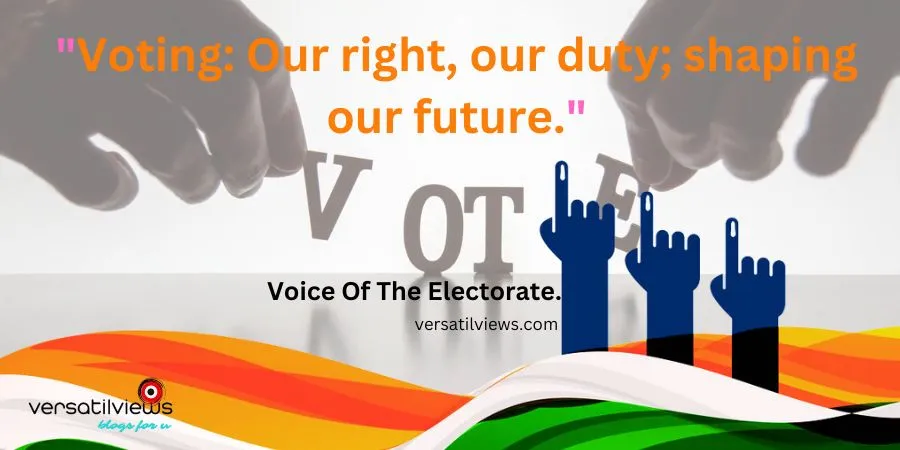
Introduction.
In India, the inaugural vote symbolizes not just a legal milestone but a profound moment of civic responsibility. As I stood in the polling booth, surrounded by echoes of past struggles, I realized the weight of this privilege. Our democracy’s journey is rich in diversity and resilience, rooted in the belief that every citizen has the right to express their will. Casting my inaugural vote honored the sacrifices of those who fought for this fundamental right, reaffirming my commitment to democratic ideals. It’s a pledge to engage in ongoing dialogue, hold

representatives accountable, and advocate for the common good. Every vote, regardless of individual preferences or socio-economic status, holds equal weight, underscoring the inclusive nature of Indian democracy. This introductory exploration delves into the significance of the inaugural vote, its historical context, and its transformative potential in shaping our nation’s course. Through personal reflections and societal analysis, we embark on a journey of empowerment, honoring the sacred bond between citizens and their democracy.
The Significance of Voting.
Voting stands as the cornerstone of democracy, embodying the collective will of a nation’s citizens and serving as the linchpin of civic engagement. Its significance reverberates through the annals of history, symbolizing both a fundamental right and a solemn duty bestowed upon individuals in democratic societies.
At its core, voting grants citizens the power to shape the direction of their nation, influencing policies, electing leaders, and safeguarding the principles upon which their society is built. It is a tangible expression of freedom, allowing individuals to assert their preferences and hold their representatives accountable for their actions.
Moreover, voting is not merely a privilege but a responsibility that underpins the social contract between citizens and their government. By participating in the electoral process, individuals contribute to the legitimacy of their governance system, affirming their stake in the collective decision-making process and affirming their commitment to the principles of democracy.
The significance of voting extends beyond its immediate outcomes, transcending political divides and fostering a sense of community and solidarity among citizens. In the act of casting a ballot, individuals from diverse backgrounds come together, united by a shared commitment to shaping the future of their nation and advancing the common good.
Furthermore, voting serves as a bulwark against tyranny and oppression, offering a peaceful and democratic means of effecting change and redressing grievances. In societies where the right to vote is protected and upheld, citizens are empowered to challenge injustice, demand accountability, and advocate for the rights and freedoms of all members of society. In essence, the significance of voting lies not only in its practical implications but in its symbolic value as a beacon of democracy and a testament to the enduring spirit of civic participation. As we reflect on the importance of voting, we recognize its capacity to empower individuals, strengthen communities, and shape the course of history for generations to come.
Preparing for the First Vote.
Preparing for the first vote is a pivotal milestone in the journey of civic engagement, marking the transition from observer to active participant in the democratic process. As young citizens embark on this journey, there are several essential steps to ensure they are ready to exercise their rights responsibly.
Firstly, educating oneself on the electoral process, understanding the significance of voting, and familiarizing oneself with the candidates and issues at stake is crucial. This involves researching political platforms, attending debates or town hall meetings, and critically evaluating information from diverse sources.
Secondly, registering to vote is a foundational step that ensures eligibility to participate in elections. This may involve completing voter registration forms, verifying eligibility requirements, and staying informed about registration deadlines and procedures.
Additionally, cultivating a sense of civic responsibility and engagement by discussing political issues with peers, volunteering for political campaigns, and actively participating in community events can enhance one’s preparedness for the first vote. Ultimately, preparing for the first vote is not merely about fulfilling a legal obligation but embracing a civic duty and seizing the opportunity to shape the future of one’s community and country. By taking proactive steps to educate oneself, register to vote, and engage in meaningful dialogue, young citizens can make informed decisions and contribute to the vibrancy and vitality of democracy.
Researching Candidates and Issues.
Researching candidates and issues is an essential aspect of informed voting, ensuring that citizens make decisions aligned with their values and the needs of their community. To effectively engage in this process, several key steps can be taken.
Firstly, it’s crucial to gather information from diverse and reliable sources. This may include candidate websites, news articles, debates, interviews, and independent fact-checking organizations. By seeking out multiple perspectives, voters can gain a comprehensive understanding of each candidate’s platform and positions on various issues.
Secondly, evaluating candidates’ qualifications, experience, and track records is essential. This involves examining their past actions, voting records (if applicable), and leadership abilities to assess their suitability for the office they seek.
Furthermore, understanding the key issues facing the community or nation and how each candidate proposes to address them is critical. Voters should prioritize issues that are personally significant to them, such as healthcare, education, the economy, social justice, or environmental sustainability, and assess candidates’ policy proposals and priorities in those areas. Finally, engaging in discussions with peers, attending candidate forums or town hall meetings, and participating in online forums can provide valuable insights and perspectives, helping voters make well-informed decisions that align with their values and contribute to the betterment of society.
Election Day Arrives.
Election Day arrives as the culmination of months of campaigning, debates, and civic engagement, marking a pivotal moment in the democratic process. On this day, citizens across the nation exercise their fundamental right to vote, shaping the future trajectory of their communities and countries.
For many, Election Day begins with a sense of anticipation and responsibility, as individuals prepare to cast their ballots at polling stations. Lines may form early in the morning, reflecting the eagerness of voters to fulfill their civic duty and make their voices heard.
As the day progresses, the atmosphere is charged with excitement and tension, as candidates and supporters eagerly await the outcome of the election. Social media platforms buzz with activity, with citizens sharing their voting experiences and encouraging others to participate in the democratic process.
Throughout the day, election officials work diligently to ensure the integrity and fairness of the electoral process, overseeing polling stations, verifying voter eligibility, and tallying ballots. Their dedication and professionalism uphold the principles of democracy and reinforce public trust in the electoral system. As the polls close and the counting begins, the nation awaits the announcement of results, poised on the brink of change and possibility. Regardless of the outcome, Election Day serves as a testament to the enduring power of democracy and the collective voice of its citizens in shaping the course of history.
Casting My Vote.
Casting my vote is more than just marking a ballot; it’s a profound act of citizenship, a tangible expression of my beliefs and aspirations for my community and country. As I step into the polling booth, I carry with me the weight of responsibility and the privilege bestowed upon me by the sacrifices of generations past.
With each tick of the pen or press of a button, I am empowered to shape the course of our collective destiny, to influence policies that impact the lives of millions, and to hold elected officials accountable to the values and principles that define our society.
In that solitary moment, I reflect on the issues that matter most to me – healthcare, education, the environment, social justice – and consider the candidates whose vision aligns most closely with my own. I weigh their qualifications, their integrity, and their commitment to serving the public good, knowing that my vote carries the power to shape the future for generations to come. As I cast my vote, I am mindful of the sacrifices made by those who fought tirelessly for the right to participate in our democracy – from suffragettes to civil rights activists. Their courage and perseverance inspire me to honor this sacred privilege and to ensure that every voice is heard in the ongoing pursuit of a more perfect union.
Post-Vote Reflections.
In the aftermath of casting my vote, I find myself reflecting on the significance of my actions and the broader implications for our society. With the ballot cast and the civic duty fulfilled, I am filled with a sense of pride and responsibility, knowing that I have played a part, however small, in shaping the future of my community and country.
I contemplate the choices I made in the voting booth, considering the candidates and issues that resonated most deeply with my values and aspirations. I reflect on the diversity of perspectives and experiences represented in the electoral process, recognizing the richness and complexity of our democratic society.
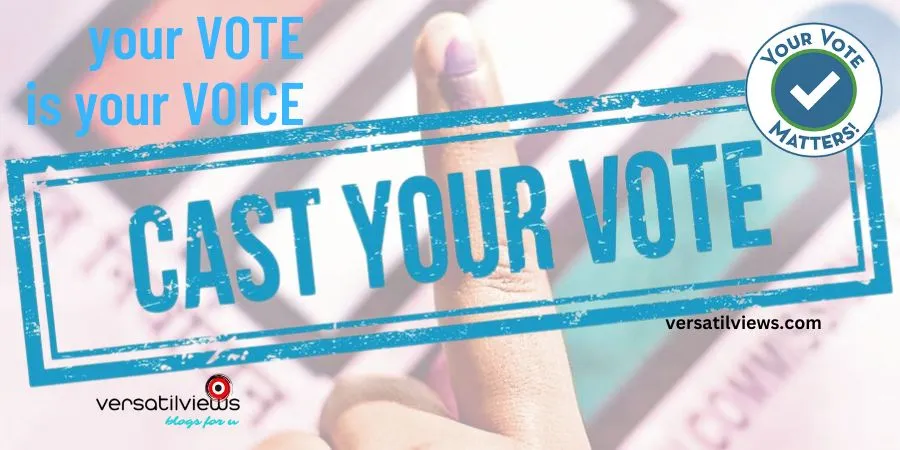
Moreover, I ponder the broader implications of the election results – the potential for change, the challenges that lie ahead, and the imperative of unity and collaboration in addressing pressing issues facing our nation. I am reminded of the resilience of our democracy and the collective responsibility we share in safeguarding its principles and institutions. As I engage in post-vote discussions with friends, family, and colleagues, I am heartened by the spirit of civic engagement and the commitment of fellow citizens to participate actively in the democratic process. Together, we reflect on the power of our collective voice and recommit ourselves to the ongoing work of building a more just, equitable, and inclusive society.
The Role of Youth in Democracy.
The role of youth in democracy is not only pivotal but also transformative, as young people bring fresh perspectives, energy, and a commitment to social change to the political arena. As the torchbearers of the future, youth hold the power to shape the course of their nations and drive progress towards a more inclusive and just society.
One of the fundamental contributions of youth to democracy lies in their capacity to challenge the status quo and advocate for innovative solutions to pressing societal issues. With a keen awareness of emerging challenges such as climate change, social inequality, and political polarization, young people are often at the forefront of grassroots movements, pushing for systemic reforms and demanding greater accountability from elected officials.
Moreover, youth engagement in the electoral process serves to invigorate democracy, broadening the representation of diverse voices and ensuring that the concerns of younger generations are heard and addressed in policy-making. By participating in elections, running for office, and mobilizing their peers to vote, young people demonstrate their commitment to shaping the future of their communities and nations.
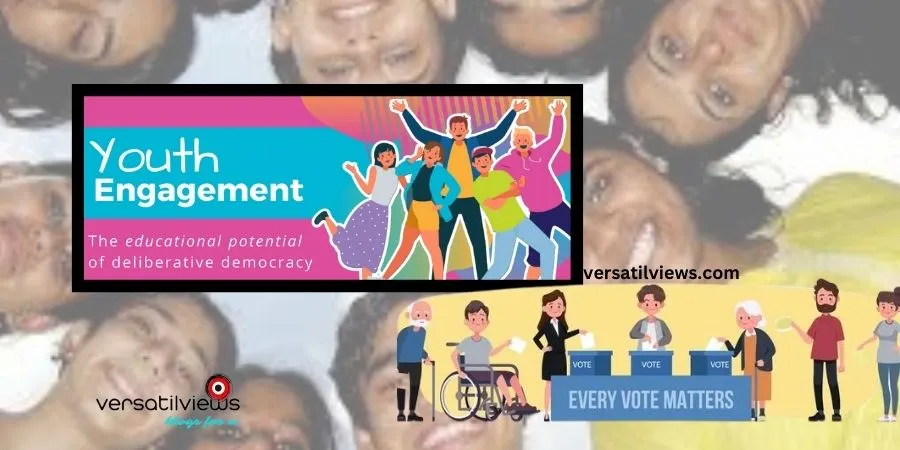
Furthermore, youth engagement extends beyond formal political structures to encompass a wide range of civic activities, including volunteerism, community organizing, and advocacy work. Through these efforts, young people contribute to the vibrancy of civil society, strengthening democratic institutions and fostering a culture of active citizenship. In essence, the role of youth in democracy is not only about securing their own future but also about safeguarding the principles of freedom, equality, and justice for generations to come. By harnessing their collective power and passion, young people have the potential to drive meaningful change and build a more equitable and sustainable world.
Challenges and Opportunities.
Challenges and Opportunities” encapsulate the dual nature of the landscape that confronts individuals, communities, and nations in the modern era. In every sphere of life, from politics to economics, from technology to the environment, there exist both obstacles to overcome and prospects to seize.
One of the foremost challenges facing humanity today is the existential threat of climate change. The rapid depletion of natural resources, rising global temperatures, and extreme weather events pose grave risks to the planet and all its inhabitants. However, within this challenge lies the opportunity to transition towards renewable energy sources, adopt sustainable practices, and forge a greener, more resilient future.
Similarly, socio-economic disparities and systemic inequalities present significant challenges to global development and social cohesion. Yet, these challenges also offer opportunities for transformative change, as societies strive to build more inclusive economies, empower marginalized communities, and promote equitable access to education, healthcare, and opportunities for all.
In the realm of technology, while advancements such as artificial intelligence and automation bring about disruptions to traditional industries and employment patterns, they also hold the promise of enhanced productivity, efficiency, and innovation. Embracing these technological advancements while mitigating their adverse impacts presents a complex yet crucial opportunity for societies to thrive in the digital age.
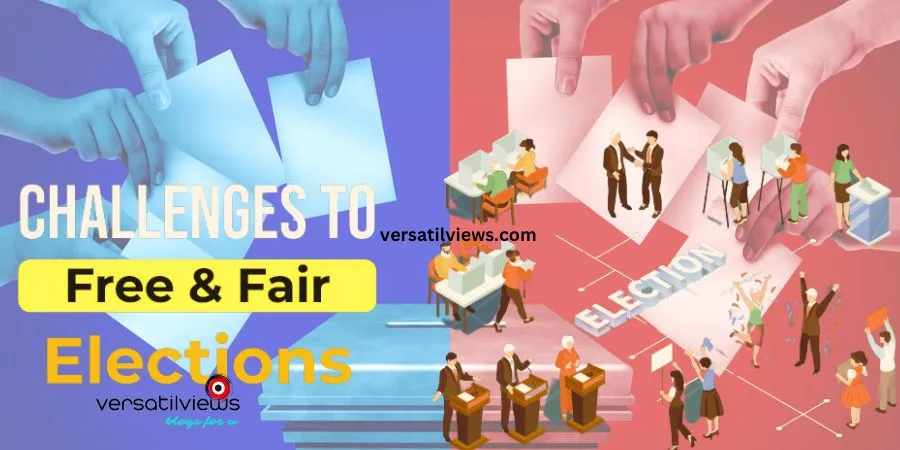
Furthermore, in the arena of geopolitics, increasing geopolitical tensions and conflicts threaten global stability and cooperation. However, concerted diplomatic efforts, multilateral cooperation, and a commitment to dialogue offer opportunities to address shared challenges, foster peace, and promote international solidarity. Ultimately, navigating the landscape of challenges and opportunities requires foresight, resilience, and collective action. By acknowledging and confronting the challenges we face while embracing the opportunities they present, we can forge a path towards a more prosperous, sustainable, and inclusive future for all.
Conclusion.
In conclusion, the journey through various themes such as “Empowering Democracy,” “Preparing for the First Vote,” “Researching Candidates and Issues,” “Election Day Arrives,” “Casting My Vote,” “Post-Vote Reflections,” “The Role of Youth in Democracy,” “Challenges and Opportunities,” has provided a comprehensive exploration of the essence and significance of democratic participation.
Through this discourse, it becomes evident that democracy is not merely a political system but a shared commitment to the principles of freedom, equality, and justice. It is a journey that begins with the recognition of one’s rights and responsibilities as a citizen and culminates in active engagement in the democratic process.
At the heart of democracy lies the power of the individual voice – the power to shape policies, elect representatives, and hold institutions accountable. From the inaugural vote to post-election reflections, each step in this journey represents a reaffirmation of the collective will of the people and the enduring spirit of democracy.
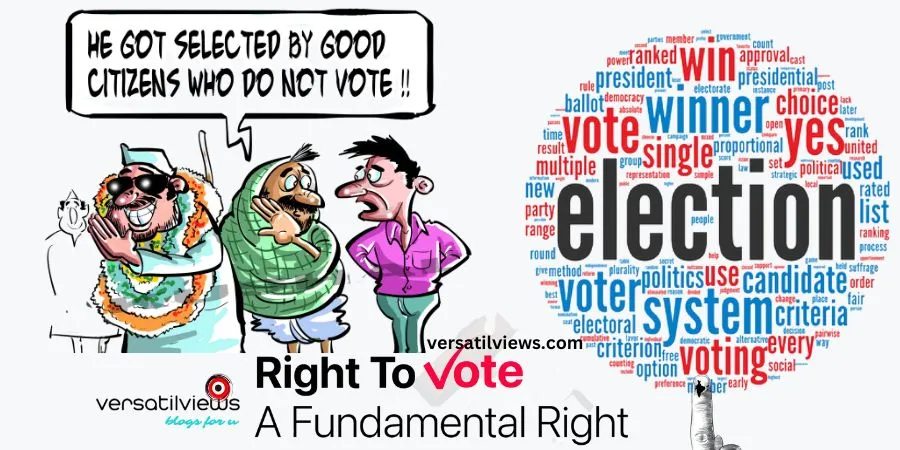
Moreover, the role of youth emerges as a catalyst for change, as young people harness their energy, creativity, and idealism to drive progress and advocate for a better future. By embracing challenges as opportunities for growth and transformation, societies can build resilience, foster innovation, and chart a course towards a more just, equitable, and sustainable world.
As we navigate the complexities of the modern era, let us remain steadfast in our commitment to democracy, recognizing that it is not a destination but an ongoing process of renewal and reinvention. By upholding democratic values, engaging in informed dialogue, and fostering inclusive participation, we can build societies that reflect the aspirations and ideals of all citizens.
Art Automotive Blog Business Education Entertainment Fashion Featured Health & Fitness Information Technology Jet, Set, Savor Lifestyle Media and Entertainment Occult Science Photography Property Real Estate Recipes Technology Tour & Tavel Uncategorized
“Voting is not just a right, it’s a responsibility—a voice that echoes the aspirations of a society, shaping its future one ballot at a time.”
Prasanta Padhi
